As some regulars here know, I have read literally thousands of books. This is not an exaggeration or hyperbole. Throughout my teenage years I averaged something like 2-3 books a week. That’s not counting comic books, articles and so on. I spent my pre-teen years going to bed late and reading under my covers with a torch even after I was supposed to be asleep. By age the age of seven I was reading adult crime novels, young adults stuff and so on. Throughout my life I have without a doubt read more than one book a week for at least 40 years, and that is being conservative about it, which would be a minimum of 2,000 books.
I mention all this not to show off, but because it is relevant to the point I am about to make concerning which book I would pick as the absolute best oe in that mountain of reading.
I have many favourites, Go Rin No Sho (this translation by Victor Harris is the best) being just one of many. The Thin Red line is very good too, although I also really liked the film, and in the case of Cloud Atlas I found the film superior to the book, which is very rare. Classics like Do Androids Dream of Electric Sheep (which became the film Blade Runner, but the book is in fact better) are in a sort of class of their own, like The Man in the High Castle (of which the story of how it was written and what Dick concluded about that process is arguably even more interesting than the book itself) because Philip K. Dick is a favourite SF author.
Various History books also have a certain pride of place, although they tend to be few, because over time, I became aware that the history we are taught is quite far from the truth, so finding history books that produce verifiable information has become somewhat of a chore. It takes a lot more effort than simply buying a book and reading it. You now need to try and see if you can actually verify anything in it as being even remotely accurate. The entire story of WWII for example, is so convoluted, full of lies, propaganda and nonsense from all sides that the truth of things may well be impossible to arrive at. What I am almost certain of so far however, is that Hitler almost certainly did not die by suicide in his bunker, but rather in South America somewhere, years later. The other curious fact is that even official Jewish Historians in Israel that work in the Holocaust memorial, today agree that the number of six million dead jews is fictitious. What the real number is, I doubt anyone will ever know. I have seen credible figures of anything from about 300,000 to 500,000 that may well be relatively accurate. What we do know is that the deaths of Jews in Auschwitz was officially reduced from 4 million originally to less than 1 million presently.
Of course, merely pointing these things out has an emotional reaction in some people, perhaps most people, who will think I am some kind of Nazi sympathiser. Which could not be further from the truth, what I am though is a person that prefers the actual truth, however unpalatable it might be, to a well-crafted lie.
So when it comes to history books, I think one needs to be extremely careful as to which ones to believe, as most of them are filled with lies. Lies that are often repeated from generation to generation. In this respect then, I think my own book, The Face on Mars, which deals with a lot more than just the Martian Structures, is actually really quite high on the list, as it brings to the fore a whole bunch of truths about humanity that are inescapable, and also, even nearly 30 years after I wrote it and ten years after I updated it, makes the most coherent argument for the ancient history of mankind that anyone has been able to piece together to date. In that respect then, I do think it deserves first place in the overview of human history category.
However, in terms of a book that may well have the most impact on anyone who reads it in terms of understanding not only some very important aspects of human history, but of humanity itself, as well of reality itself and the ultimate truths of our situation here on Earth, there is one book, that upon reflection, undoubtedly must rise above all others. It is
The Crusades: Iron Men and Saints by Harold Lamb. First printed in 1930, this is a masterful piece of historical fact, having been pieced together by having referred to documents of the times during which the Crusades actually took place.
Although it can be read as simply just a historical record of what took place, which it is, a reader with a little more intelligence would be able to consider the character of the people concerned and what drove them. And once you begin to consider these things, it becomes fairly obvious that despite the usual human motives that undoubtedly existed, there was also an undercurrent of real belief, faith, spiritual truth, that on some level absolutely must also have existed.
Even if you were to relegate that all to some kind of mass psychosis, even at that most atheistic of levels, it would still be an utterly fascinating aspect of humanity; too large and persistent to ignore for anyone that has a minimum of imagination.
And the repercussions of reading that one book, will resonate to some extent or other in the life of anyone who reads it.
My only addition to this recommendation is that if you want to be better able to follow the contextual aspect of the history described in The Crusades, you would probably be better off reading God’s Battalions: The Case for the Crusades by Rodney Stark (who is also a very rare creature, an honest historian!) alongside it, as back in 1930, most people had some idea of the main aspects of the Crusades, something that very few have any reference for today (by design).
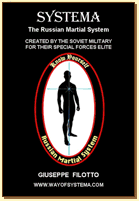

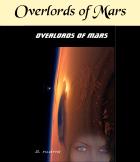
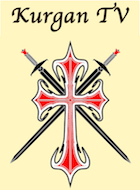

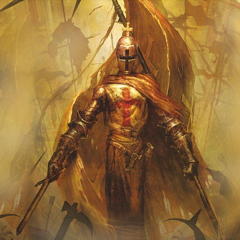
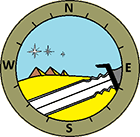


The Lamb book is on my “to read” list. Haven’t read “Thin Red Line” (which phrase has an interesting history https://infogalactic.com/info/The_Thin_Red_Line_(Battle_of_Balaclava))
but I have read and enjoyed 2 non-fiction books about the Battle of Okinawa as experienced by a British and an American fighting soldier: “Quartered Safe Out Here” by Flashman author George MacDonald Fraser and “With the Old Breed” by E.B. Sledge.
These two books completely sated my desire to read war stories.
I suggest you watch the film instead. It’s not really a war film. It’s a film about the Ways of Men. That is the different types that act and think and deal with things differently.
[…] I recently posted on the Best book I ever read. But that was my attempt at mixing what I thought was important with what I enjoyed. By the same […]